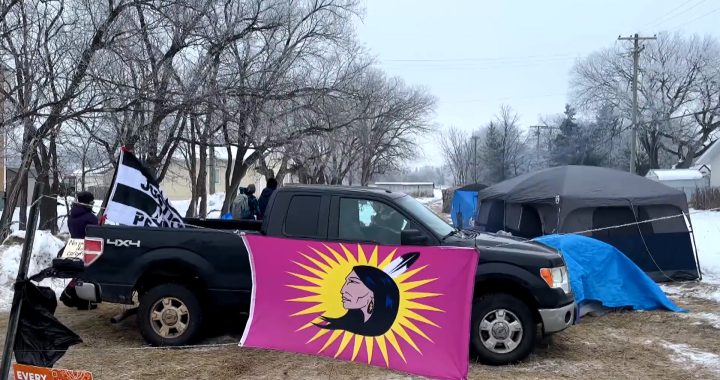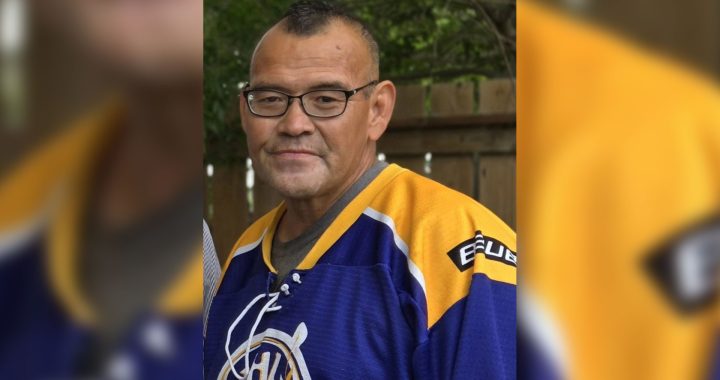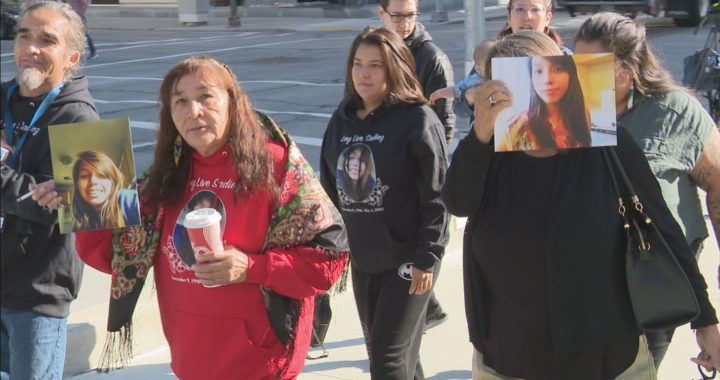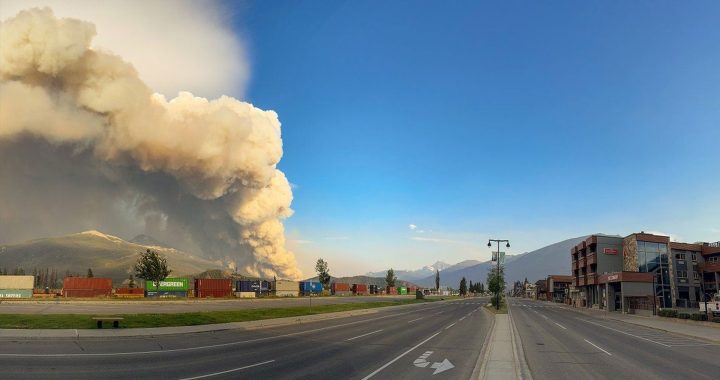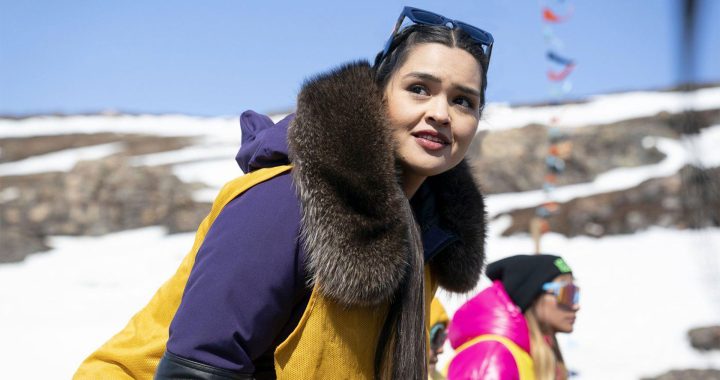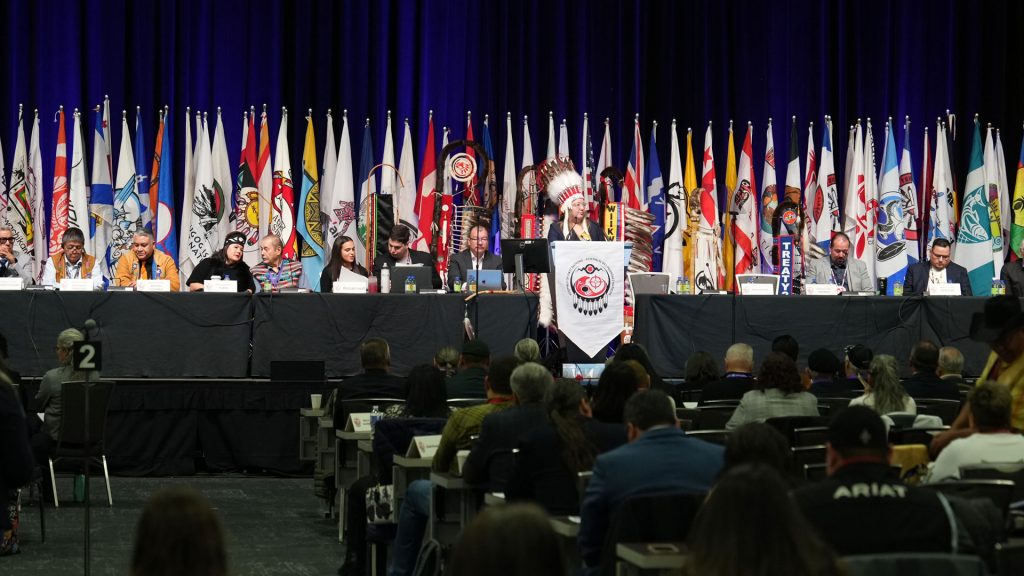
A policy analyst at the AFN raised questions about the validity of the resolutions on child welfare that saw the Final Settlement Agreement defeated. Photo: APTN.
Chiefs meeting in Ottawa at the Assembly of First Nations gathering have voted to kickstart a new round of negotiations to reform the on reserve child welfare system with the federal government and have the AFN issue a public apology to First Nations child welfare agencies.
In a resolution that passed without any amendments, chiefs voted to direct the AFN executive to put Canada on notice that reforms need to happen and that discrimination must end.
The first resolution to pass said, in part, that “any new proposal for long-term reform in First Nations child and family services provide for a national umbrella agreement to ensure non-discrimination with regional agreements,” and that “such regional agreements are funded in a manner that safeguards First Nations children, youth and families from discrimination now and forever.”
The resolution also calls for the AFN to “withdraw and apologize for any and all public statements that suggested or implied that First Nations Child and Family Service Agencies led the campaign to defeat the draft Final Settlement Agreement.”
“Such comments are disrespectful of our front-line workers and of the Chiefs who exercised their due diligence…”
A resolution to include the Northwest Territories in any future agreement was also passed.
The chiefs in Ottawa voted to chart a new path for negotiations after 267 chiefs voted against a document called the Final Settlement Agreement, or FSA. The agreement was negotiated between the AFN, Nishnawbe Aski Nation and Chiefs of Ontario and the federal government.
Chiefs pushed back at a gathering in Calgary in October saying there were a number of issues with the FSA with some saying they hadn’t been properly consulted and the deal was negotiated behind closed doors.
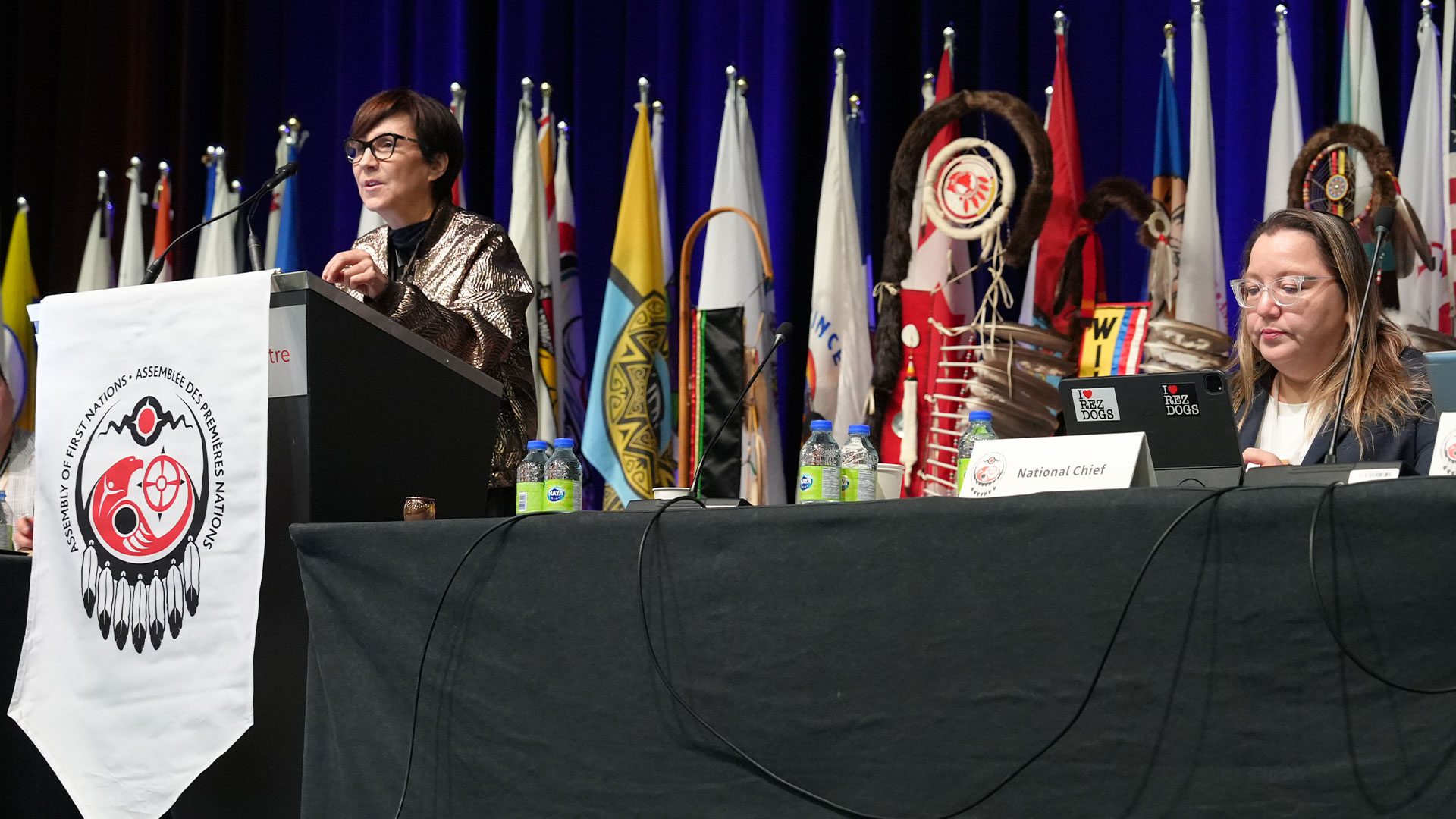
Heading into Wednesday’s debate on the child welfare agreement resolutions late on Day 2, some chiefs remained critical of how the AFN and Ottawa reached the draft final settlement agreement (FSA).
“After Calgary, we expected that there would be an immediate movement by the AFN on establishing the chiefs committee in order to oversee the technical committee, which would be based on child welfare experts as opposed to legal experts,” said Erica Beaudin, chief of Cowessess First Nation in Saskatchewan and a representative on the Children’s Chiefs Committee.
The children’s committee was formed at the October special chiefs assembly in Calgary.
“So, it’s a little bit disconcerting as well as almost disrespectful that we do have this resolution coming forward with a few changes, but they’re lipstick and rouge,” she said.
Cynthia Bunn, an Elder and delegate council representative from Sagkeeng First Nation in Manitoba, said the FSA should have been rolled out differently.
“I think it was kept well hidden. You know, I didn’t see the agreement. When the [Bill] C92 came out, that’s what we based our direction to go to make our own family law. So yeah, I don’t even agree with what’s happening right now. I think it’s too fast,” Bunn said.
A lack of consultation of First Nations communities was one of the biggest flaws chiefs saw in the agreement when the FSA was voted down at the October assembly.
Samuel Crowfoot, a legal advisor for Siksika Nation near Calgary, said it’s a big issue for them because there’s no AFN regional chief representing Alberta.
“So, a lot of our voices aren’t necessarily being heard or advocated for. And what happens out east doesn’t necessarily apply to us out west the way they think it would,” Crowfoot said.
“As we all know, all nations in Canada aren’t on the same footing. Some have self-government agreements, some have treaties, some have neither. And so this one-size-fits-all approach doesn’t fit everything because we weren’t ever necessarily treated on the same type of a playing field.”
Read More:
Caring Society says AFN put leadership in a ‘bizarre situation’ with child welfare agreement
Siksika Chief Ouray Crowfoot was among the chiefs who voted against the FSA in October. Crowfoot says as a chartered personal accountant by trade, he recognized the $47.8 billion attached to the FSA would do a lot for First Nations who need money.
Crowfoot said giving a short timeframe for chiefs to consider agreements is a familiar pattern and approach by Ottawa.
“Even with these land claims and all these things that’s happened historically is you have a nation or a community that is starving, that’s living in Third World kind of situations. So oftentimes when you hear, ‘Hey, if you sign here, you get this.’
“Historically we’ve signed and then go, ‘Oh, man, I didn’t realize what I was signing’,” Crowfoot said.
Chief Wilfred King from Gull Bay First Nation said he thinks it’s unfortunate the agreement got voted down in October.
“At the end of the day, it’s the chief and council who is responsible for our kids, whether they reside on and off reserve. And we don’t know how this will ever be revived in the future,” King said.
“But I think that that’s one of the things when changes of government happen. We see Supreme Court decisions are not adhered to. And if you have an agreement in hand, sometimes that’s a little more convincing and you have a little more ground to stand on.”




